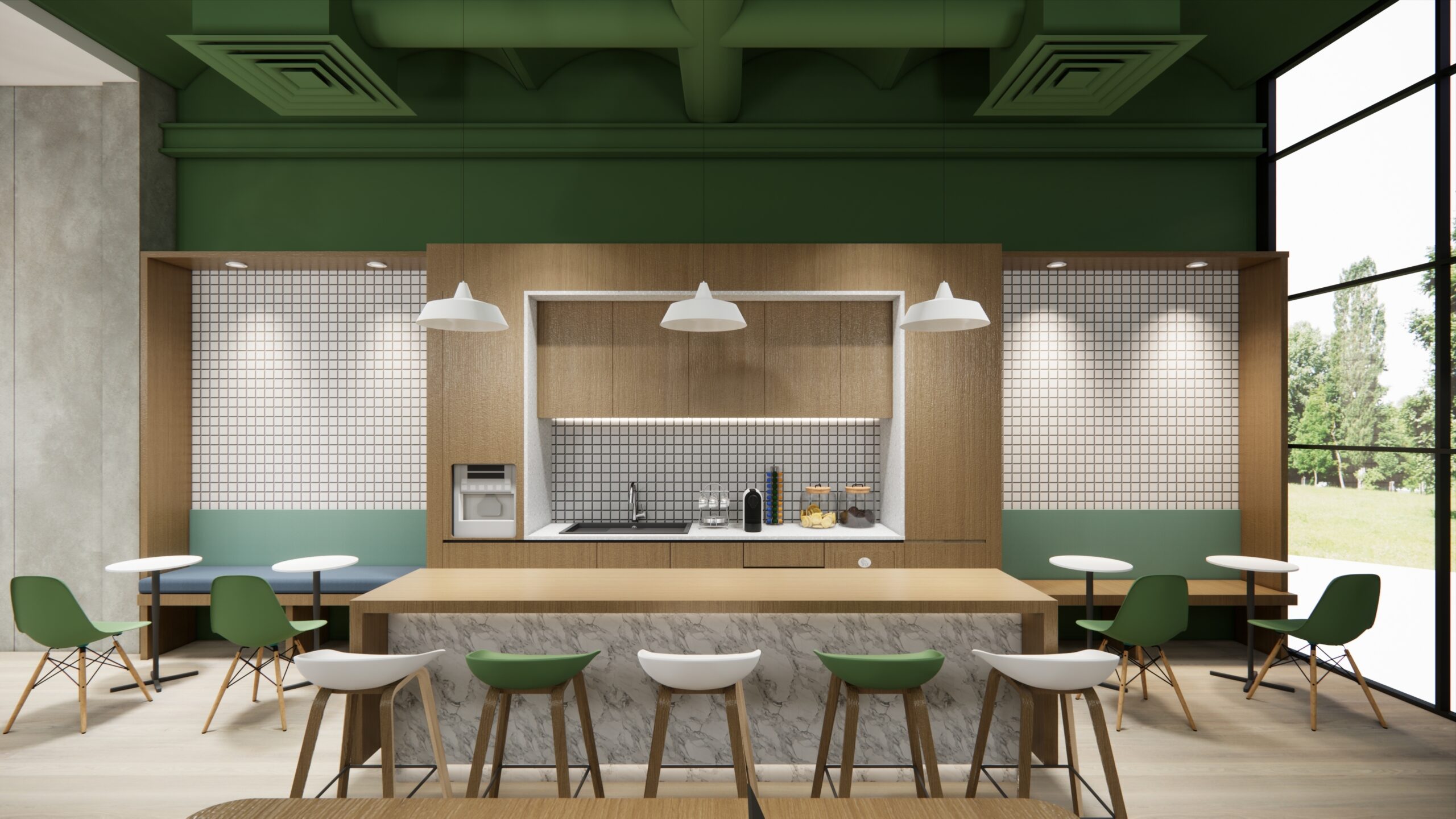1. A Shift from “Battery Farm” Desks to Open, Human-Centric Layouts
Before COVID, offices were often defined by tightly packed desks, minimal personal space, and a layout optimised for density, not wellbeing. That’s changed. Today’s office spaces are more open, spacious, and mindful of comfort. Companies are prioritising:
- Wider desk spacing for personal comfort and psychological ease
- Hot desking or flexible workstations to allow movement and freedom
- Soft seating areas and lounge-style setups to foster informal work and conversation
This approach doesn’t just look better — it helps people feel better about coming in.
2. Quiet Zones, Phone Booths & Private Pods
During lockdowns, people got used to working in their own quiet environments. Offices are now replicating this by creating acoustic pods, phone booths, and dedicated quiet zones — ideal for focused work, private calls, or simply decompressing.
These spaces support neurodiverse employees and cater to different working styles, improving productivity and morale.
3. A “Home-from-Home” Feel
To encourage employees back to the office, companies are designing spaces that feel less corporate and more comfortable:
- Residential-style furniture
- Soft furnishings and warm textures
- Ambient lighting instead of harsh fluorescents
- Coffee bar areas, kitchenettes, and wellness rooms
This design language creates emotional familiarity and ease — a key part of reversing the remote-work habit.
4. More Greenery, More Life
Biophilic design has surged post-COVID. Offices now regularly include:
- Live planting
- Green walls
- Natural materials like timber and stone
Plants do more than just look good — they improve air quality, reduce stress, and boost cognitive function. The result? A space that feels alive and energising.
5. Pet-Friendly & Child-Friendly Considerations
Some forward-thinking workplaces have embraced pet-friendly policies. After all, many people adopted dogs or cats during lockdown — and leaving them behind all day can be a deal-breaker.
Likewise, child-friendly facilities, such as occasional creche services, nursing rooms, or flexible parental areas, are on the rise. It reflects a more holistic approach to employee wellbeing and work-life integration.
6. Collaboration Over Isolation
One of the most missed elements of remote work was spontaneous collaboration. Offices are now optimised to bring teams together organically, with:
- Open collaboration zones
- Breakout areas with writable walls and shared tech
- Project lounges for agile, cross-functional working
This shift recognises that while focus can happen at home, innovation thrives in shared spaces.
7. Wellbeing and Mental Health Front and Centre
Post-COVID fit-outs also reflect a growing awareness of mental health. Offices increasingly offer:
- Quiet wellness rooms
- On-site therapy or coaching spaces
- Natural daylight planning
- Fitness areas or yoga rooms
These aren’t luxuries anymore — they’re essential for retaining top talent and showing genuine care.
8. Digital Integration for Hybrid Working
Finally, the tech backbone of the modern office has been upgraded. Offices now feature:
- High-spec video conferencing rooms
- Smart booking systems for desks and meeting spaces
- Seamless AV integration
- Touch-free access and controls
This ensures hybrid and in-person employees are always connected, without compromise.
In Summary: The New Office Is Built for People, Not Just Productivity
The post-COVID office isn’t about going back — it’s about going forward. It’s more human, more flexible, and more supportive of real-life needs. At Intrabuild, we specialise in designing and delivering future-ready office environments that reflect this new reality — helping you attract, retain, and empower your workforce in a changing world.
If you’re planning a fit-out or refurbishment and want to bring these principles into your space, get in touch with us. Let’s build something better together.


